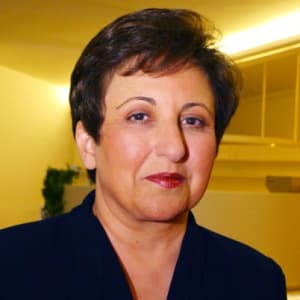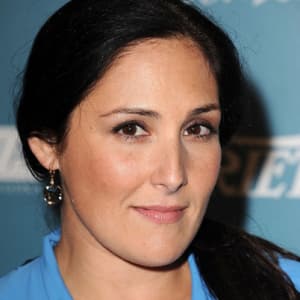
Shirin Ebadi
Shirin Ebadi is an Iranian lawyer and human-rights activist. She was the first female judge in Iran, and won the 2003 Nobel Peace Prize.
Synopsis
Shirin Ebadi was born on June 21, 1947, in Hamedan, Iran. In 1975, Ebadi was appointed president of Bench 24 of Tehran's City Court, becoming the first female judge in Iran. In the 1990s, she practiced law and began taking human rights cases. Ebadi founded the Association for Support of Children's Rights in 1995 and the Human Rights Defense Center in 2001. Two years later, she won the Nobel Peace Prize.
Early Life
Shirin Ebadi was born to a family of practicing Muslims on June 21, 1947, in Hamedan, Iran. When Ebadi was 1 year old, she and her family moved to Tehran. As a child, Ebadi attended Firuzkuhi primary school, followed by Anoshiravn Dadgar and Reza Shah Kabir secondary schools.
Attorney and Judge
After passing her entrance exams, Ebadi spent the next three and a half years earning her law degree at Tehran University's Faculty of Law. Following a half year's apprenticeship, she started serving as a judge in 1969, while continuing to pursue her doctorate in private law at Tehran University.
In 1975, Ebadi was appointed president of Bench 24 of Tehran's City Court, becoming the first female in the history of the Iranian justice system to achieve this distinction. Ironically, just four years later, Ebadi was forced to resign. When the conservative religious leader Ruhollah Musawi Khomeini was installed after the Islamic Revolution, women were forbidden to serve as judges. Attempting to open a private law practice instead, Ebadi was unable to get her application approved. She would not manage to obtain a lawyer's license until 1992—three years after Khomeini's death.
Personal Life
The same year that Ebadi became president of Bench 24, she married an electrical engineer named Javad Tavassolian. During the 1980s, she gave birth to two daughters, the younger of whom would go on to study law at her mother's alma mater.
Human Rights Activist
During the time that Shirin Ebadi was waiting for her attorney's license to be approved, she taught human rights training courses at Tehran University. Once she returned to law, she focused on cases that allowed her to advocate civil rights, with a particular focus on women and children. Ebadi's most highly publicized cases included representing the mother of Arin Golshani, a girl who was tortured and killed under her father's custody. Ebadi also represented the families of serial murder victims Dariush Foruhar, Parvaneh Foruhar and Ezzat Ebrahiminejad, as well as the mother of murdered photojournalist Zahra Kazemi.
In addition to writing several books and articles in support of human rights, Ebadi founded the Association for Support of Children's Rights in 1995 and the Human Rights Defense Center in 2001. Two years later, Ebadi was awarded the 2003 Nobel Peace Prize for "her efforts for democracy and human rights."
More recently, Ebadi attended the first Trust Women conference (2012) in London, where she promoted her petition to amend the gender-discrimination laws in Iran's constitution.




